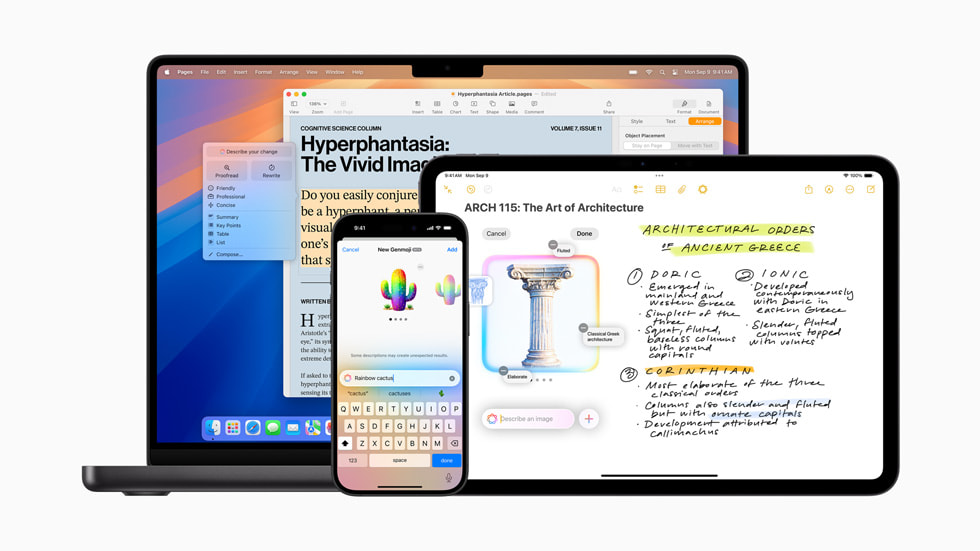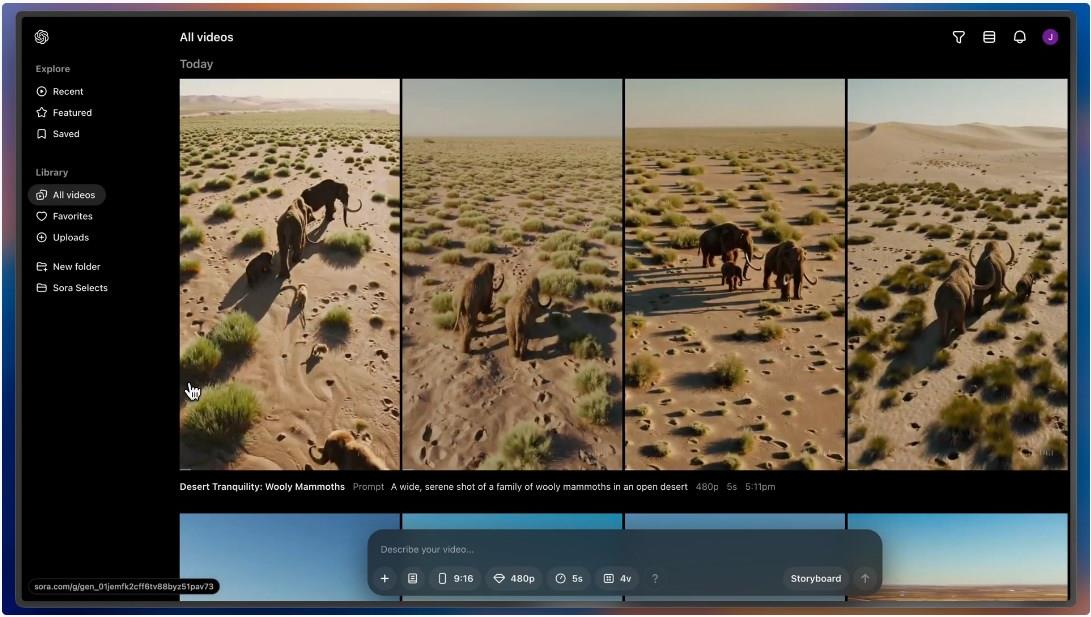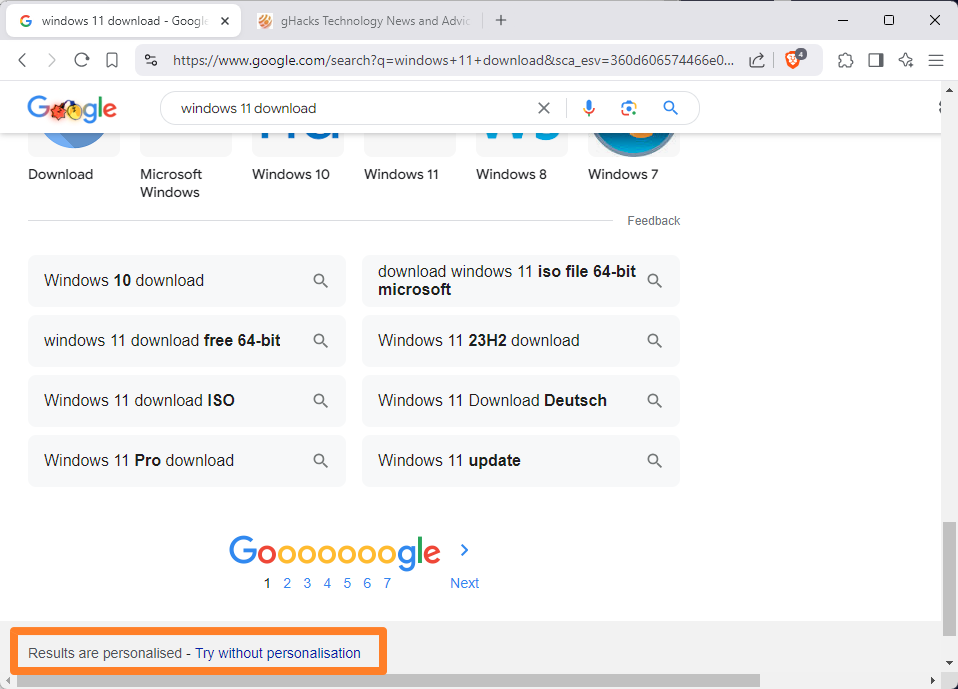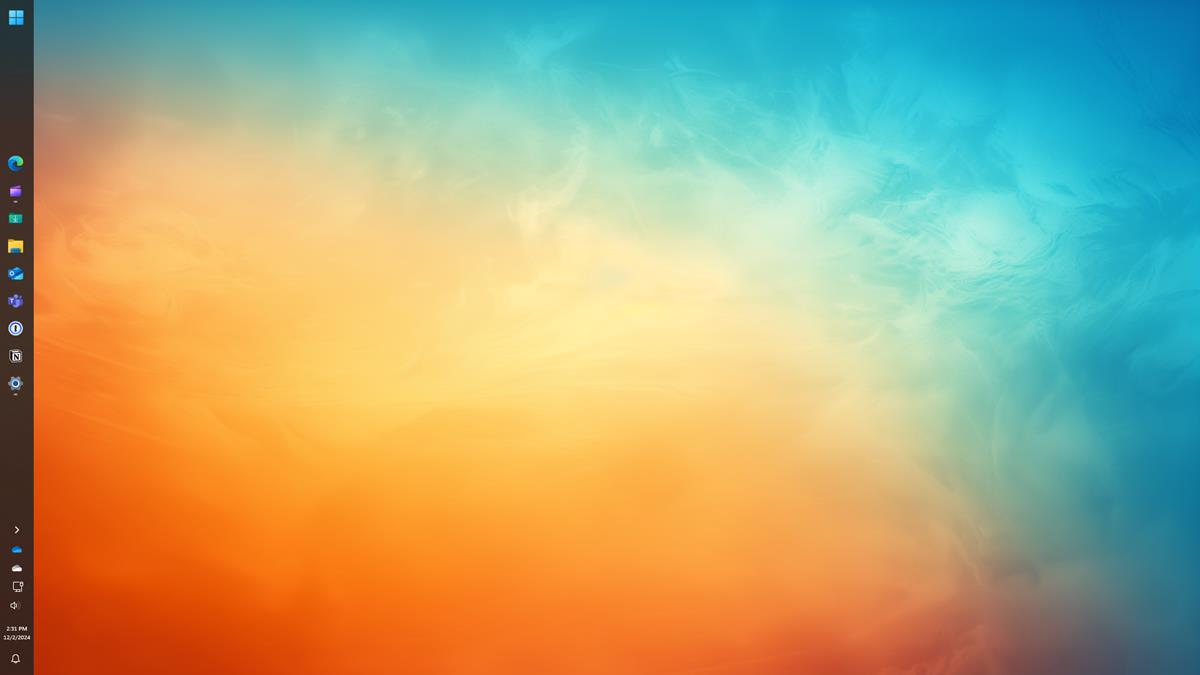Apple Intelligence is now available in 6 additional countries
Apple Intelligence debuted iOS 18.1 in the United States in October. Now, the highly anticipated AI features are available in 6 additional countries: Australia, Canada, Ireland, New Zealand, South Africa and the United Kingdom. Users can now enable Apple Intelligence in these regions to access various AI-powered features. . Siri now integrates ChatGPT and you can use it without logging into your OpenAI account. You can optionally choose to log in to your account if you have a ChatGPT Plus subscription, to take advantage of the premium features it has to offer.

Apple Intelligence has options like Rewrite, Proofread, and Summarize, which you can access through many apps, including Notes, Mail, and more. The Image Wand can create images based on the contents of a note. Those who want to create images with AI will find Image Playground useful, it is integrated into many applications, including messaging, and is also available as a standalone application. Camera Control, Visual Intelligence, Genmoji, are some of the features that users can now access on devices with iOS 18.2, iPadOS 18.2 and macOS 15.2 Sonoma.
Although this may seem impressive on paper, the fact remains that Apple Intelligence is still only available to English-speaking users. Naturally, users around the world are not happy about the delay, especially considering how aggressively Apple Intelligence has been promoted as a flagship feature. Apple says it plans to release an update in April next year to bring certain features to more countries. Apple will add support for Chinese, English (India), English (Singapore), French, German, Italian, Japanese, Korean, Portuguese, Spanish and Vietnamese next year, and confirmed that Apple Intelligence will also be available in the European Union. .
Sora: OpenAI’s video generator is here
OpenAI wants to take AI to the next level after dominating the chatbot industry with ChatGPT. The company launched Soraits AI-based tool that can generate videos from text, images and videos. Users will be able to use Sora to create videos that last up to 20 seconds, simply by entering text prompts. It’s amazing that you can generate a video from scratch simply by describing what you want to see. Alternatively, you can also upload images or videos and ask the AI tool to create a video based on the media.

Sora has many limitations, mainly to reduce the load on its servers. This is why Sora is not available to free users or those with a ChatGPT Team, Enterprise, or Edu subscription. OpenAI has made Sora exclusively available for ChatGPT Plus and ChatGPT Pro tiers. The latter was announced last week and costs $200 per month, but includes unlimited use of Sora.
Pegasus spyware infections could have been more widespread
Pegasus spyware could have spread more widely than imagined. Although this tool has primarily been used to target government officials, journalists and activists, a report by iVerify suggests that spyware that affected Android and iOS users managed to infect 2,500 devices per 1 million phones.

As part of its mobile threat hunting process, the company has launched an application called iVerify Basic, which can detect whether a device is infected with the Pegasus spyware. Users can purchase the app for $0.99 and install it on their iPhone or Android device, to scan it for Pegasus infections. The app also offers security guides to protect user data. It’s unclear how effectively the app can detect spyware.
Non-personalized Google Search results are not anonymous
Google has introduced a new feature for its search engine that allows users to search for queries without personalization. This aims to provide better search results based on a user’s data such as past searches, activity, location, interaction with advertisements, etc. Google uses your usage to know how relevant the results are to you, and this happens even when you’re not logged into your account.
Users who land on a search results page on Google’s website on mobile platforms or on PC can click the “Try without customization” option that appears at the bottom of the page, to view results that they believe the company, are not suitable for your use. .

There are some issues with the way the feature was announced. These non-personalized results are not truly anonymous, so Google will still use the data to improve its results. When you turn off personalization, it also turns off autocomplete. Google admitted that the feature still relies on some user data to generate search results, even if a user has enabled the “Do not personalize” option.
Want a vertical taskbar on Windows 11? Start11
StarDock did the impossible, it gave Start11 program users the power to move the Windows 11 taskbar to the sides of the screen. Thousands of users have asked Microsoft to add an option for a Vertical taskbar on Windows 11but the company ignored the requests, instead focusing on other areas of the operating system. It is worth mentioning that this feature existed in previous versions of Windows, so removing the option had disappointed many users.

Start11, which is a premium app that costs $9.99, has been updated to a v2.5 beta version. This new version adds an option that allows you to move the taskbar to the left or right of your monitor. It only takes a few clicks to apply the change. It also improves support for the left-aligned Start button on multiple displays, now you can use it on more than two monitors. Users criticized Microsoft for failing to do what a third-party app achieved.
Windows Recall collects sensitive data even if you tell it not to
Microsoft’s Windows recall has been criticized by privacy and security experts, alarmed by the privacy risks it poses. The AI-powered tool records the screen once every 5 seconds, meaning it knows everything you do on your computer. Shortly after, Microsoft removed Recall from released Copilot+ PCs. However, this did not stop the Redmond company from working on the controversial application.
Recall is currently being tested in Insider Builds, but it seems the company still hasn’t learned its lesson. Now, reports have surfaced stating that Windows Recall collects sensitive information even when a user has disabled a filter for sensitive data. The app reportedly saved data from Notepad, content from PDF forms in Microsoft Edge, and custom web forms containing user data such as a credit card number, although it appeared to block information about stores in line.


